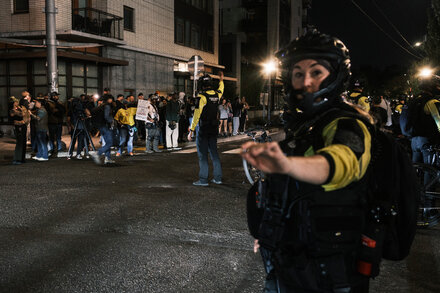A federal appellate court panel on Wednesday appeared open to arguments that could permit federal troops to deploy to Portland, signaling a potential shift in the legal framework for federal intervention in local civil unrest. This development stems from ongoing legal battles challenging federal authority during domestic disturbances.

A federal appellate court panel on Wednesday appeared receptive to arguments that could pave the way for federal troops to be deployed to Portland, Oregon, signaling a potential shift in the legal landscape surrounding federal intervention in local civil unrest.
During oral arguments, judges from the U.S. Court of Appeals for the Ninth Circuit questioned attorneys representing the City of Portland and various civil liberties groups about the limits of federal authority and the conditions under which the National Guard or other federal personnel could be deployed to maintain order or protect federal property. The case stems from ongoing legal battles initiated after past deployments sparked controversy and legal challenges.
The core of the legal debate centers on the balance between state sovereignty and federal power, particularly in the context of domestic disturbances. Attorneys for the federal government argued that the President possesses inherent authority to deploy resources, including military personnel, to protect federal assets and ensure the enforcement of federal laws, especially when local authorities are perceived as unable or unwilling to control prolonged unrest.
“The government has a fundamental duty to protect its property and its personnel, and when local resources are insufficient or uncooperative, federal action becomes not just permissible, but necessary,” stated a representative for the Department of Justice during the hearing.
Conversely, lawyers for the City of Portland and plaintiffs argued that such deployments violate principles of federalism, can escalate tensions, and infringe upon the constitutional rights of citizens to protest. They highlighted past instances where federal agents, lacking proper identification and training for civilian crowd control, exacerbated volatile situations.
“Allowing federal troops to operate within a sovereign state without a clear request or consent from local authorities undermines the very fabric of our federal system and sets a dangerous precedent for the militarization of domestic policing,” argued a counsel representing the plaintiffs.
Judges reportedly focused on the definitions of “insurrection” and “domestic disorder,” as well as the specific legal thresholds required for federal intervention under statutes like the Insurrection Act. Questions from the bench suggested an interest in clarifying when federal actions move from support to overriding local control. Some judges probed whether a prior injunction, which had restricted federal deployments, might have been overly broad or infringed upon executive powers.
The panel did not issue a ruling immediately, but their questioning indicated a thorough review of the legal precedents and the practical implications of both allowing and restricting such deployments. A decision is expected in the coming months, which could significantly impact how future civil disturbances are handled across the nation.
Source: Read the original article here.





